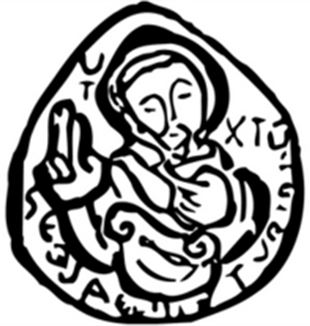
Disarming Beauty is Work of Evangelization for our Time
"At a time when religious fanaticism perpetrates the grossest offenses against humankind, it takes courage to posit that our Christian faith is reasonable only if it is 'without reservation.'" Michael Winters reviewed Julián Carrón's Disarming Beauty.The following article first appeared in National Catholic Reporter on September 22, 2017.
Fr. Julián Carrón has led the Communion and Liberation movement since 2005 when the movement's founder, Msgr. Luigi Giussani, died. Carron's new book, Disarming Beauty: Essays on Faith, Truth and Freedom, is at once splendid and frustrating. And, in this regard, it is faithful to the style of Giussani's many books which could stop me dead in my tracks with insights and inspiration and also leaving me scratching my head.
A confession: I have a soft spot for Communion and Liberation. I was introduced to them by Msgr. Lorenzo Albacete who served as chaplain to the movement in the United States for many years. When I found a head-scratching claim in one of Giussani's books, Lorenzo could explain it to me, but Lorenzo has gone to God and I had to work my way through Disarming Beauty on my own.
An observation: Part of Giussani's great insights was that in our modern technocratic age, we had to relish the fact that there is Mystery at the heart of our experience, that there is Mystery at the heart of our faith in Jesus Christ, and that this experience of Mystery was, in fact, a confirmation of the Incarnation, not a difficulty. So, it should not surprise that sometimes the writings of both Giussani and Carrón seem opaque.
But let's start with the gems. Chapter 5 opens with the arresting question once posed by Dostoevsky: "Can one believe while being civilized, i.e. a European?, believe without reservation in the divine nature of Jesus Christ, the Son of God?" It is a question that is too easy to ignore. At a time when religious fanaticism perpetrates the grossest offenses against humankind, it takes courage to posit that our Christian faith is reasonable only if it is "without reservation."
Yet, Carrón is no culture warrior or religious fanatic. After a few pages of unpacking the claim, and noting the changed, secularized culture of today, he writes, "we need to find a way of living the faith, within this social reality and pluralistic culture, such that others can perceive our presence not as something to defend themselves from, but as a contribution to the common good and their own personal good. We need a way of being present without a will to dominate or oppress, and at the same time with a commitment to living the faith in reality, in order to show the human benefit of belonging to Christ." The phrase "human benefit" would sound suspiciously utilitarian coming from some writers, but not Carrón: Here he is expounding another essential Communion and Liberation charism, the proposition that faith must be reasonable or it is insulting to expect people to believe it.
Like the great theologians and founders of the Communio project – Balthasar, de Lubac and Ratzinger – Carrón and Communion and Liberation stand on the claim that Christianity is an event. "Christianity is a fact, an event, not a doctrine," writes Carrón. "It is enough just to read a page of the gospel in order to realize this, to recognize its vast distance from any purely notional conception of Christianity." This insight became a part of the magisterial teaching of the church most clearly in Deus Caritas Est, where Pope Benedict XVI wrote, "Being Christian is not the result of an ethical choice or a lofty idea, but the encounter with an event, a person, which gives life a new horizon and a decisive direction." The reduction of Christianity to a checklist of ideas is a reduction that deforms the faith.
So, too, is the reduction of Christianity to a set of ethical norms. "Another, equally common error is the reduction of Christianity to ethics, to values," writes Carron. "It is an old temptation: St. Augustine already rebuked the Pelagians for it. 'This is the hidden and horrid poison of your heresy: you want the grace of Christ to consist in his example, not in his gift.'" Carron offers a brief historical reflection on how this reduction manifested itself in recent years, but I would encourage him and other CL Communion and Liberation leaders to be more clear about citing contemporary examples so that the indictment is less notional. If it is a "horrid heresy" let's not beat around the bush in confronting it.
Another splendid quality that this book shares with Giussani's is the wide range of cultural references. I cannot think of a book about our Catholic faith that I have read in the last few years that contains more citations to works of literature and poetry. The artist can sometimes achieve what a theologian, bound to a more systematic approach, cannot attain, a sense of lived faith, inculturated faith, a faith that vibrantly creates beauty and shines the artist's light on truth.
#DisarmingBeauty